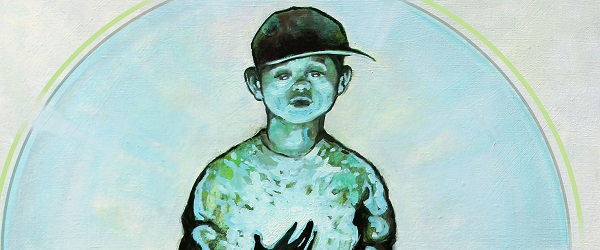Evangelicals like to say they love the Inklings, that group of Oxford-associated authors who produced lots of narrative-friendly prose during the 1940s. But do something for me, would you? Name as many of them as you can. I suspect that most can readily recall C.S. Lewis and J.R.R. Tolkien, and probably a few will cite G.K. Chesterton and Dorothy Sayers (even though those two were only loosely associated). Hardly anyone, though, knows much about Owen Barfield and Hugo Dyson, Robert Havard and Adam Fox, all far more regular members of the group. And then there’s Charles Williams, the Inkling who played William Blake to Lewis’ Samuel Taylor Coleridge. In other words, he was … a bit different. Forget lions and wardrobes. He wrote books with Christian takes on the Tarot, black magic, and succubae. It was Williams I kept thinking about as I read John Palmer Gregg’s young-adult supernatural thriller Some Glow Brightly.
Red Snyder is essentially an ordinary kid, a young man with a secret crush who tends to buckle under pressure just when his baseball team needs him the most and who envies the unflappability of his war-photographer father. But he’s soon going to discover that he’s anything but average. When a freak car wreck caused by a coyote grievously injures him and puts his father in a coma, Red will learn that the world doesn’t work the way he always believed it did. Existence is bifurcated into spiritual and physical planes—and he can pass between them at will. Soon enough he’ll have to face down diabolical djinn, killer kobolds, and a horrific hermit bent on bringing about the end of the world.
Readers only have to get a couple of chapters into Some Glow Brightly to tell that Gregg has studied Lewis’ brand of mashed-up mythology. In addition to the nods to Arabic and Germanic lore mentioned above, he throws in bits reminiscent of Ray Bradbury’s Something Wicked This Way Comes and Madeleine L’Engle’s A Wrinkle in Time. The book also draws heavily on (wait for it) auras and astral projection. Now you can see why I found myself mulling over Charles Williams’ literary heritage. I’m sure a few of you have raised eyebrows at this point, but I really don’t think that Gregg is trying to inculcate young-adult readers into New Age spirituality. Rather he’s attempting to use an unusual speculative framework to shoehorn in healthy themes about bravery, sacrifice, and the beauty of creation. (He even references Ezekiel 1:13 to justify his compositional choice.) Of course, that very framework and a bit of intense violence near the book’s end will turn off some families. That’s a shame because Glow has moments of brilliance.
(Picture: Copyright 2016 by Tony Sobota; used under fair use)
- “Hatchet” Is the Best Sort of Mature Book - August 11, 2021
- Imagination, Instruction, and a Cheery “Robot” Quartet - February 3, 2021
- A Contentious, Incontestible Boy - January 27, 2021

Leave a Reply